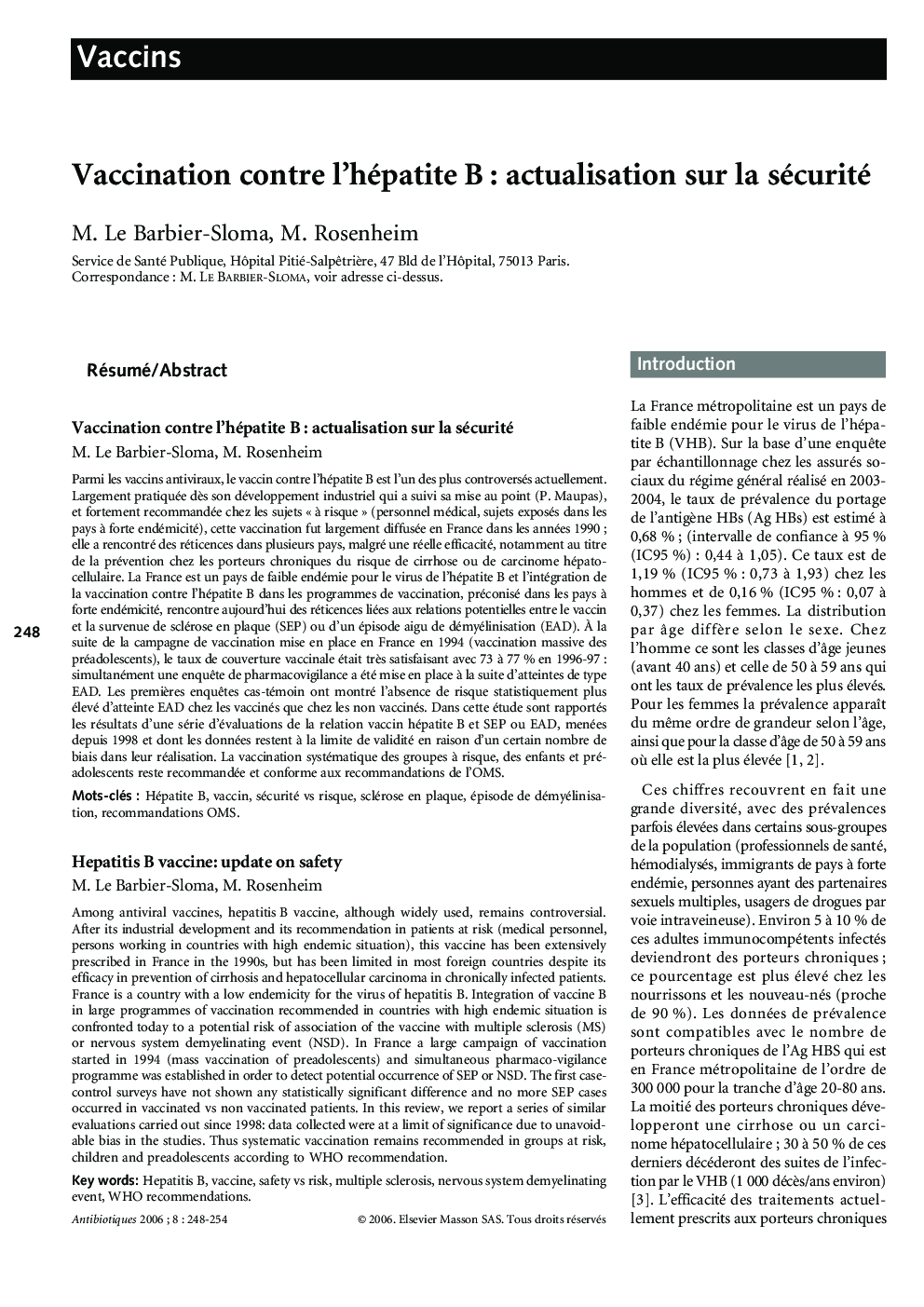| Article ID | Journal | Published Year | Pages | File Type |
|---|---|---|---|---|
| 3396165 | Antibiotiques | 2006 | 7 Pages |
Abstract
Among antiviral vaccines, hepatitis B vaccine, although widely used, remains controversial. After its industrial development and its recommendation in patients at risk (medical personnel, persons working in countries with high endemic situation), this vaccine has been extensively prescribed in France in the 1990s, but has been limited in most foreign countries despite its efficacy in prevention of cirrhosis and hepatocellular carcinoma in chronically infected patients. France is a country with a low endemicity for the virus of hepatitis B. Integration of vaccine B in large programmes of vaccination recommended in countries with high endemic situation is confronted today to a potential risk of association of the vaccine with multiple sclerosis (MS) or nervous system demyelinating event (NSD). In France a large campaign of vaccination started in 1994 (mass vaccination of preadolescents) and simultaneous pharmaco-vigilance programme was established in order to detect potential occurrence of SEP or NSD. The first case-control surveys have not shown any statistically significant difference and no more SEP cases occurred in vaccinated vs non vaccinated patients. In this review, we report a series of similar evaluations carried out since 1998: data collected were at a limit of significance due to unavoidable bias in the studies. Thus systematic vaccination remains recommended in groups at risk, children and preadolescents according to WHO recommendation.
Related Topics
Health Sciences
Medicine and Dentistry
Infectious Diseases
Authors
M. Le Barbier-Sloma, M. Rosenheim,
